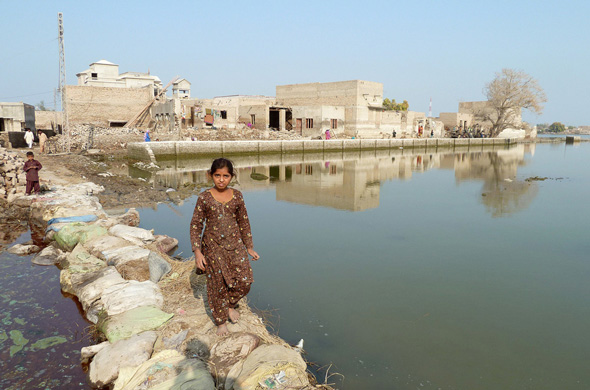The original version of this article, by Michael Kugelman, appeared on the Huffington Post.
The most troubling news to emerge from Pakistan in recent days has little to do with militancy or other headline-grabbing scourges that afflict the country. Rather, it relates to a
new Oxfam report’s finding that more than a third of the country’s population – about 60 million people – is undernourished.
Pakistan may well be convulsed by extremist violence; according to
Pakistani estimates, it has killed or injured 30,000 in recent years. Yet contrary to what U.S. media coverage may suggest, this is not the greatest threat to the Pakistani people.
Numerous candidates contend for this dubious honor. One, underscored by Oxfam, is hunger. Even before last year’s devastating floods, which destroyed more than 2 million hectares of arable land, the World Food Program estimated that 77 million Pakistanis were going hungry. Another is water insecurity, one of Pakistan’s biggest killers. With a third of Pakistanis lacking access to clean water, no wonder waterborne illness claims the lives of 1.2 million Pakistanis per year – and 630 children every day. Lack of education also tops the list. More than 40 million of Pakistan’s 70 million school-age children (those between the ages of 5 to 19) are not in school. And then there is Pakistan’s energy crisis. Due to power shortfalls, some Pakistanis suffer outages for as long as 20 hours per day – crippling industry and bringing misery to millions of households. All of this is compounded by state corruption, which constrains access to these precious resources and services.
Continue reading on Huffington Post.
Sources: Business Recorder, Oxfam International, PBS, World Food Program.
Michael Kugelman is a program associate with the Wilson Center’s Asia Program.
Photo Credit: “People returning home as soon as the water recedes enough,” courtesy of flickr user DFID – UK Department for International Development.

 A Publication of the Stimson Center.
A Publication of the Stimson Center.




